calsfoundation@cals.org
Kingsland (Cleveland County)
| Latitude and Longitude: | 33º51’13″N 092º17’39″W |
| Elevation: | 220 feet |
| Area: | 1.12 square miles (2020 Census) |
| Population: | 347 (2020 Census) |
| Incorporation Date: | July 22, 1884 |
Historical Population as per the U.S. Census:
|
1810 |
1820 |
1830 |
1840 |
1850 |
1860 |
1870 |
1880 |
1890 |
1900 |
|
– |
– |
– |
– |
– |
– |
– |
– |
464 |
364 |
|
1910 |
1920 |
1930 |
1940 |
1950 |
1960 |
1970 |
1980 |
1990 |
2000 |
|
445 |
397 |
328 |
473 |
337 |
249 |
304 |
320 |
395 |
449 |
|
2010 |
2020 |
|
|
|
|
|
|
|
|
|
447 |
347 |
|
|
|
|
|
|
|
|
Birthplace of musical legend Johnny Cash and of famed football coach Paul “Bear” Bryant, the city of Kingsland was created by the railroad industry and the timber industry. Reaching its high point in size and glamour during its first few years of existence, the city has dwindled in size and importance but remains the second-largest city in Cleveland County.
Dorsey County—later renamed Cleveland County—was sparsely settled when it was created by the Arkansas General Assembly in 1873. Heavily forested, the region was ready for the harvesting of timber when the Texas & St. Louis Southwestern Railway (known as the Cotton Belt) was built across the county in 1882. Seventy-five people, mostly engaged in the timber industry, lived near the railway station when Austin Gresham applied for a post office for the community in December 1882. His first selected name, Arkatha, was refused by the postal service, as was his second choice, Cohassett. Kingsland was his third choice, and it was approved in June 1883. The second-class city was incorporated in 1884. At the time, it contained three steam-operated sawmills, a planing mill, several stores, two hotels, a druggist, a livery stable, and a blacksmith. A Methodist church was begun in 1884, followed by two Baptist churches the following year. The first school classes met in the Methodist church in 1889, until a two-story frame building could be completed for the school.
Kingsland had nine sawmills by 1889. When the county courthouse at Rison (Cleveland County) burned that year, Kingsland sought to have the county government moved to Kingsland, but after two elections, the state Supreme Court decided that the county seat would remain at Rison. The Cleveland County Bank opened in Kingsland in 1899, and a brick factory was erected in 1900.
The decline of the timber industry, due to depletion of the forests, meant economic hardship around Kingsland even before the nation fell into the Great Depression. Thomas Oil Company and Kingsland Oil Company both incorporated in 1926, but they did not have the same success earlier oil companies had experienced south of the city. The Works Progress Administration (WPA) opened a sewing room in Kingsland in 1937 and began a public library in 1938; in 1942, they completed a new school building for the Kingsland school system. Like other school systems in Arkansas, the Kingsland school system maintained separate structures for white and African-American students. The high school in Kingsland was only for white students; the African-American students were bused to Fordyce (Dallas County). Several small rural schools were consolidated into the Kingsland schools, which were finally integrated in 1967.
Famed musician Johnny Cash was born near Kingsland in 1932, but when he was three years old, the family moved to Dyess (Mississippi County), a New Deal resettlement colony for impoverished farmers. Cash repeatedly returned to his birthplace, most notably for a 1976 concert in Rison, which drew many fans from Kingsland. Football coach Paul “Bear” Bryant also was born and raised near Kingsland, but he played high school football for the Fordyce team rather than for Kingsland.
The New Edinburg (Cleveland County) school system was consolidated into the Kingsland school system in 1985, but the state government continued to demand larger minimum limits for school populations. The 1940s school building had been destroyed by fire in 2003 and was being rebuilt when the state forced consolidation of the Kingsland and Rison school systems, creating the Cleveland County School District in 2004. The Kingsland high school held its last classes in spring of 2005, but the school district continues to use the elementary school building in Kingsland.
In 2002, the Nature Conservancy of Arkansas, in partnership with Hancock Timber Research Group, acquired 820 acres of land near Kingsland to create the Kingsland Prairie Preserve. The land, a patchwork of pine forest and open prairie is an unusual saline soil habitat that supports several rare kinds of vegetation. A section of U.S. Highway 79, built to pass over the railroad line in Kingsland in 1938, was added to the National Register of Historic Places in 2005. Kingsland was in the national news in May 2022 when a local man shot at the town’s water tower, creating a leak in the silhouette image of Johnny Cash on the tower that made it look like Cash was urinating.
On January 4, 2025, President Joe Biden signed into law a bill naming the local post office the Kingsland Johnny Cash Post Office. Aside from Johnny Cash, Kingsland was also the home of perennial gubernatorial candidate Monroe Schwarzlose.
For additional information:
Cleveland County, Arkansas: Our History and Heritage. Rison, AR: Cleveland County Historical and Genealogical Society, 2006.
“Kingsland Prairie.” The Nature Conservancy. http://www.nature.org/ourinitiatives/regions/northamerica/unitedstates/arkansas/placesweprotect/kingsland-prairie.xml (accessed June 17, 2022).
“Old U.S. 79 Kingston Segment (Kingsland, Cleveland County).” National Register of Historic Places nomination form. On file at Arkansas Historic Preservation Program, Little Rock, Arkansas. Online at https://www.arkansasheritage.com/arkansas-historic-preservation-program (accessed April 28, 2023).
Woodward, Colin Edward. Country Boy: The Roots of Johnny Cash. Fayetteville: University of Arkansas Press, 2022.
Steven Teske
Butler Center for Arkansas Studies
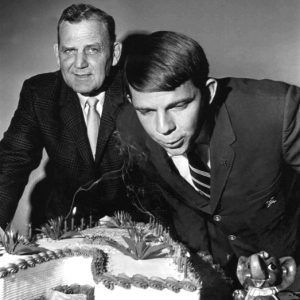
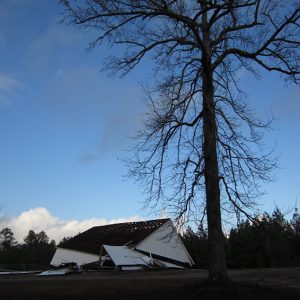
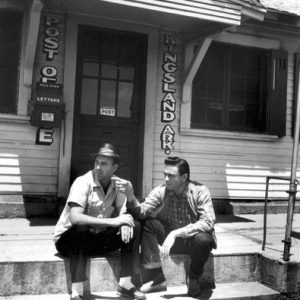
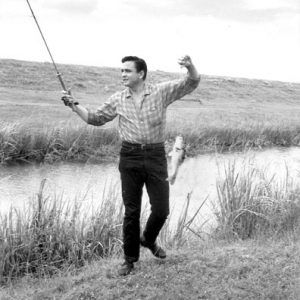
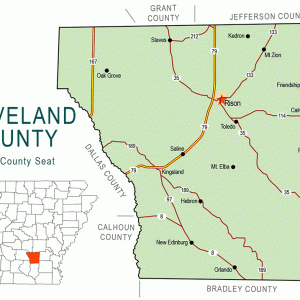
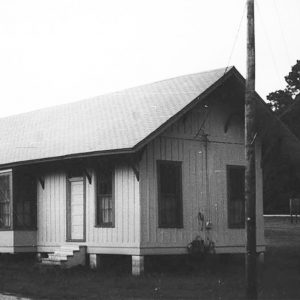
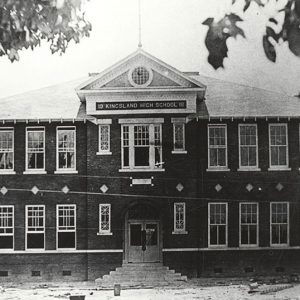
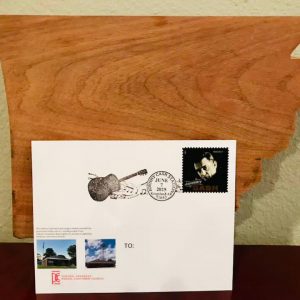
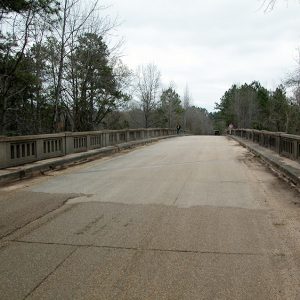




Comments
No comments on this entry yet.